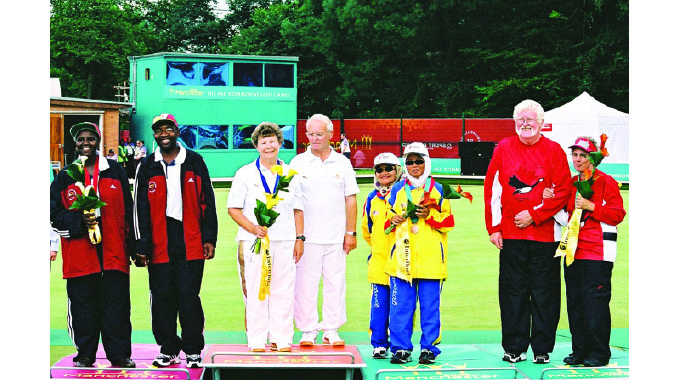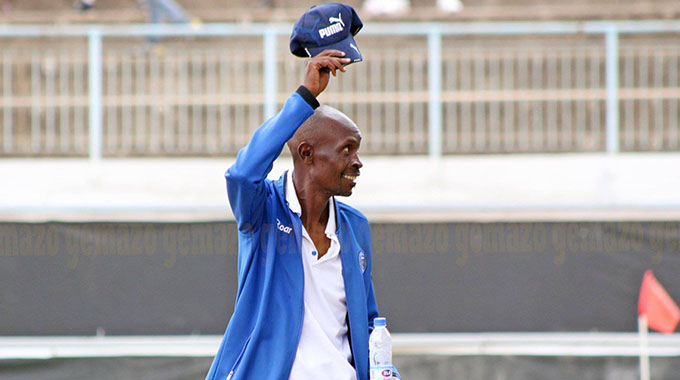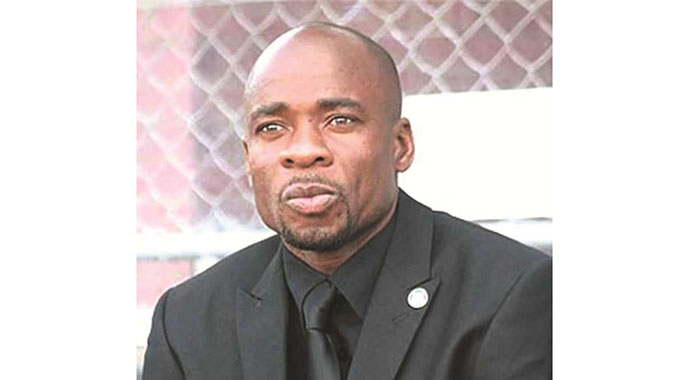The forgotten Queen of blind bowling

Eddie Chikamhi
Senior Sports Reporter
AT the peak of her career, blind bowling queen, Connie Sibanda, drove the point home that disability was not a handicap, if one was determined.
Sibanda, who is arguably one of the biggest success stories in the first two decades in Independent Zimbabwe, raked up an array of gold medals at various world bowls championships, between 1989 and 2002.
Now 66, she has since retreated into retirement and is involved in activism, for people living with disabilities, from her base in Bulawayo.
During the halcyon days in blind lawn bowls, she sat on top of the world.
She did everything, during her glittering career, to prove why she was voted the Sportsperson of the Year in Zimbabwe, in 1989.
Sibanda was not only a powerful force at home.
She used to travel a lot, for competitions, and won medals in Zimbabwe, South Africa and as far afield as New Zealand.
Sibanda was the flagbearer for Zimbabwe, at the 2002 Commonwealth Games in Manchester, England, where she also came out with flying colours after winning silver.
Nicknamed the “Queen of Blind Bowling”, Sibanda dominated the World Blind Bowls rankings for over a decade, in the ‘90s.
But, the highlight of her career, was in 1989.
She made history by becoming the first Zimbabwean to win two gold medals at the world blind bowling championships.
With the priceless assistance from her coach Maureen Barrett, Sibanda teamed up with fellow Zimbabwean Chris Hales, to win her first gold in the mixed pairs event at the 4th World Blind Bowls Championships, held in this country.
Sibanda then picked up her second gold, in the women’s singles, clinching it with a 21-8 thrashing of her Welsh rival, Dorothy Brockway, in the final match at the Harare City Bowling Club.
She had won all 10 matches in the tournament while competing in the B1 category, for the totally blind.
To show this was no mean feat, along the way she had played international opponents from Australia, Canada, England, Hong Kong and New Zealand. It was not surprising, at the end of the year, she was crowned Zimbabwe’s Sportsperson of the Year, at a glittering ceremony held in Harare.
“The year 1989 was actually the greatest year in my life,” she said in a previous interview with our sister paper, the Chronicle.
“Winning double gold at the World Championships was the pedestal I needed to achieve even greater things in bowling and actually, I believe, that I was destined for success.”
She had many trips, across the Limpopo, where she left a mark in almost every event that she participated, in South Africa.
She collected four gold medals, five silver medals, a bronze medal, and won six floating trophies. In her last South African tournament, she won double gold after finishing first in both the singles and doubles category, in Johannesburg in 2000.
Sibanda’s last appearance on the international stage was when she took part in the 2002 Commonwealth Games in Manchester, England.
She was chosen to be the country’s flag bearer at the Games’ opening ceremony, with Zimbabwe represented by 22 medal hopefuls.
But, in the end, there was disappointment for many.
The country only won two medals.
Swimming sensation, Kirsty Coventry, who is now the Minister of Youth, Sport, Arts and Recreation, led the way with Zimbabwe’s only gold medal at the Games.
She was only 18, back then.
And, then, Sibanda won Zimbabwe’s only other medal when she settled for silver, behind England’s Ruth Small, in a rain-affected final on the Heaton Park greens in Manchester.
Sibanda was born in 1955 at Antelope district hospital in Matobo, Matabeleland South.
She started gradually losing her sight in 1980 and, by 1985, it had completely gone.
Of late, she has been actively involved in the fight for the rights of women and girls, living with disabilities, through her organisation, Zimbabwe Women with Disabilities in Development.








Comments